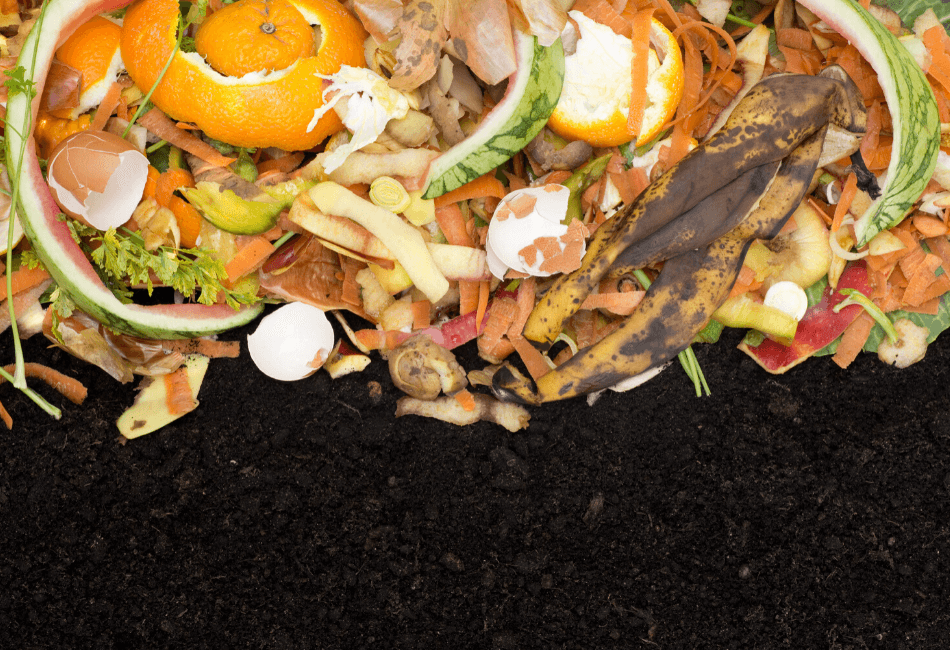Yes, orange peels can be composted and they are an excellent addition to a compost pile. However, they take a long time to break down when left in larger pieces. Slicing the peels into smaller pieces helps decrease the decomposition time. If you leave them whole, there is a good chance that peels will remain after everything else in the pile has decomposed. You’ll likely want to pull these pieces out of the pile and add them to the new pile. In any case, a layer of browns (i.e. leaves, twigs. paper towels) a few inches thick should be placed on the top of the peels in the compost pile.
Table of Contents
Benefits of Orange Peels to Plants
Orange peels are extremely beneficial to plant growth. An article by Princeton University tells the story of how 12,000 metric tons of orange peels were scattered over degraded rain forest land to study the impact on the ecosystem.
Scientists returned to this area 15 years later to find astonishing results. The land adjacent to the orange peel site was easy to travel across with minimal natural obstacles. However, the orange peel site was thick with growth to the point where it was necessary to cut through the vegetation at times. This presented a compelling case to consider orange peels an efficient natural fertilizer.
The orange peel site was studied along with the unfertilized land next to the location. The study found, “The area fertilized by orange waste had richer soil, more tree biomass, greater tree-species richness and greater forest canopy closure.” [source].
Orange Peels in Compost Concerns
You should not overload your compost bin with orange or other citrus peels if you are vermicomposting (worm composting). According to The University of California Extension, citrus peels release a chemical known as d-limonene as they break down.
Why is this a concern? Well, it can be toxic to the beneficial worms or other insects if you are doing vermicomposting or naturally have worms in your compost.
You want the worms actively eating in your compost so that they can release beneficial waste (worm excrement) that is an excellent fertilizer. The university only recommends a small to moderate portion of citrus/orange peels when vermicomposting. If you are not specifically vermicomposting, overdoing it with orange peels is not as much of a concern. However, we advise against overloading the compost pile with orange peels and rather sticking with a diverse selection of materials to reach the ideal 30:1 ratio of carbon-to-nitrogen.
Orange Peels: Beyond the Compost Pile

Orange peels provide many benefits outside the compost pile. Here are few of our favorite uses for orange peels when not being used in the compost pile:
- Insect Repellent – Orange peels can be rubbed on the skin to work as a bug repellent. This is a good naturally alternative to harsh smelling store bought sprays. In fact, the d-limonene that is naturally in orange peels is an ingredient in several commercially available repellants.
- Odor Reducer – It is no secret that the kitchen or outdoor garbage cans can produce some nasty smells. Orange peels placed on the bottom of the trash cans will help freshen up the cans. Additionally, orange peels also help deodorize the kitchen sink when processed through the garbage disposal. The disposal does a nice job at releasing the oils from the peels which helps overpower other foul smells.
- Fire starter – Orange peels work as an excellent fire starter for the fireplace, campfire, fire pit, or just about any other type of fire. The peels should be dried first so that they ignite efficiently.
- Natural Cleaner – Orange peels and vinegar are popular ingredients to use to create a DIY cleaner. You simply place a couple of orange peels in a mason jar and then fill the jar with vinegar. You then seal the jar and store it away in the cupboard for about three weeks. You can then use the orange peel vinegar as a household cleaner after it has been diluted with water. Many people mix 50 percent water with 50 percent orange peel/vinegar in a spray bottle.
- Maintain Soft Brown Sugar- Many readers likely have been frustrated after opening up the brown sugar in the pantry to find it hard. Hard brown sugar often leads to the tiresome task of chiseling away at it until the required amount is produced. Not fun! Adding a couple orange peels to the brown sugar helps promote moisture to keep the brown sugar soft.
- Natural Air Freshener – If you are having company over and want the house smelling fresh, you can boil orange peels with cinnamon to create an amazing aroma that your guest will love.
Final Thoughts
In summary, orange peels are acceptable to place in the compost pile as a “green” item. While they are acidic, their acidity won’t be an issue as they decompose as long as the compost bin is not overwhelmed with orange peels. Orange peels take some time to decompose so the best composting results will come from cutting the peels small. If you are worm composting, only place a minimal amount of citrus peels in the compost pile so that the worms are not harmed from the natural d-limonene found in citrus fruits.
Those are the basics to orange peel composting. We hope you have success using orange peels in your pile. If you choose not compost the peels, consider using them for one of the alternative uses listed above. These alternatives are often much better than not putting the peels to good use by throwing them away.

